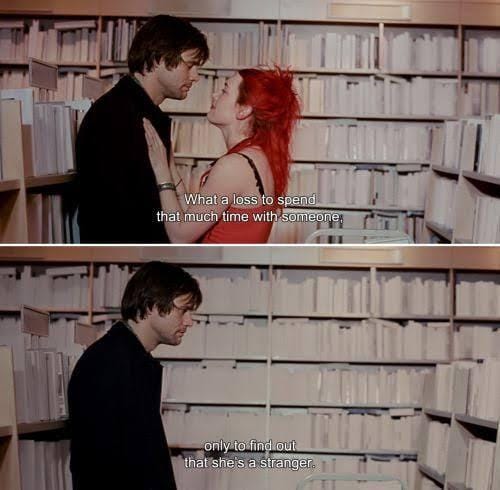Understanding Karmic Relationships
Have you ever met someone and felt an inexplicable pull toward them, as if you’d known them before? It’s an instant connection, a magnetic attraction, almost as if the universe itself conspired to bring you together.

When the Love Feels Like Fate
Have you ever met someone and felt an inexplicable pull toward them, as if you’d known them before? It’s an instant connection, a magnetic attraction, almost as if the universe itself conspired to bring you together. The chemistry is intoxicating—suddenly, your world is brighter, your heart is lighter, and you can’t help but wonder: Is this person my soulmate? My one true love? My twin flame?
But then, just as quickly as it ignited, the magic begins to fade. What goes up must come down. The arguments start to outnumber the moments of joy. You reconcile, but nothing really changes. You find yourself caught in an exhausting cycle, leaving you more confused than fulfilled.
Sound familiar? Welcome to the complex world of karmic relationships. While some spiritual gurus might call it fate, psychologists often recognize it as a reenactment of unresolved past wounds—an opportunity for growth, albeit a painful one. Let’s break down what these relationships really mean, and why they’re often mistaken for true love.
What Are Karmic Relationships, Really?
Karmic relationships, often talked about in New Age circles, are intense, dramatic, and difficult by nature. The term itself stems from the idea of karma, found in Eastern religions like Buddhism and Hinduism. Karma is the belief that our actions have consequences—not only in this life, but potentially in future lives as well.
This makes karmic relationships feel as though they are the unfinished business of past lives, a cosmic debt that must be repaid. Think of it as reaping what you’ve sown—whether that’s learning hard lessons or experiencing the flip side of past actions. However, not all karmic relationships are inherently “bad”; they can be pivotal in our journey, revealing our deepest wounds and areas that need growth.
This dynamic is perfectly portrayed in Eternal Sunshine of the Spotless Mind. Joel and Clementine’s relationship is intense, passionate, and filled with lingering past wounds. Despite their attempts to erase each other from their memories, the karmic pull remains too strong to ignore, compelling them to face their unresolved issues.

Is It Karmic, or Just Toxic?
It’s not always easy to tell the difference between a karmic relationship and a toxic one. Both can involve high highs and low lows, repetitive patterns, and drama. So, how do you know whether it’s an intense love story with a few bumps, or just a relationship that’s bad for you?
The answer lies in how you feel. Are you thriving, learning, and growing, or are you merely surviving, burning out, and feeling stuck? Karmic relationships are like spiritual workouts—they’re meant to strengthen you, but they can also wear you down if you don’t take breaks to reassess and reflect.
As psychotherapist Ken Fierheller puts it, “Karmic relationships can be vehicles for growth and learning, even if they’re painful. Toxic relationships, on the other hand, are defined by harmful behaviors like manipulation and control, with no real potential for growth.” If you and your partner can’t recognize or address unhealthy patterns, then you’re stuck in what’s known as a
karmic loop—a repeating cycle that only ends when one or both partners wake up and decide to change.
Can You Ever “Win” a Karmic Relationship?
Winning a karmic relationship doesn’t mean staying together forever. It often means understanding that the person who unearths your deepest wounds isn’t necessarily the one who will heal them. It can be a bittersweet realization, but it’s often the most liberating one.
As therapist Kim Burris puts it, “Sometimes, the bravest thing we can do for ourselves is to say ‘no more’ and leave a relationship that’s no longer serving us. This decision can deepen the most important relationship of all—the one we have with ourselves.”
But here’s the catch: if you leave without understanding your own role in the relationship dynamic, you’re likely to encounter the same patterns in your next one. It’s not just about ending things—it’s about transforming yourself. Taking responsibility for your part in the situation isn’t about assigning blame; it’s about reclaiming your power to change and attract better relationships moving forward.

Take La La Land, for instance. Mia and Sebastian are undeniably drawn to each other, each playing a pivotal role in the other’s personal growth. However, the relationship's purpose isn't longevity—it's transformation. By the end, their paths diverge, but they’re both better versions of themselves for having met.
The Purpose of a Karmic Connection
While karmic relationships can feel fated, they often come with a clear expiration date. Their purpose is to teach, not to last. You might learn to set boundaries, value yourself more, or heal past traumas. Once the lesson is clear, it’s time to move on—no matter how strong the chemistry feels.
Remember, letting go of a karmic relationship doesn’t mean failure. It’s not about the length of time you spend with someone, but about how much you learn from the experience. If you can walk away having gained insight and self-awareness, then you’ve already won. The universe isn’t punishing you; it’s guiding you toward growth.
The Takeaway: Love Yourself First
Whether you’re in a karmic relationship or just navigating love’s rocky terrain, the most crucial lesson is to love yourself first. Only then can you create the foundation for a healthy relationship with someone else.
As spiritual life coach Priscila Lima de Charbonnieres puts it, “The best way to heal is to take responsibility for attracting and co-creating our reality. By assuming responsibility, we can transcend our relationship patterns.”
So, the next time you feel an overwhelming connection with someone, pause. Before you dive headfirst into what could be another karmic loop, ask yourself: What is this person here to teach me? And perhaps more importantly, Am I ready to learn?

Comments ()